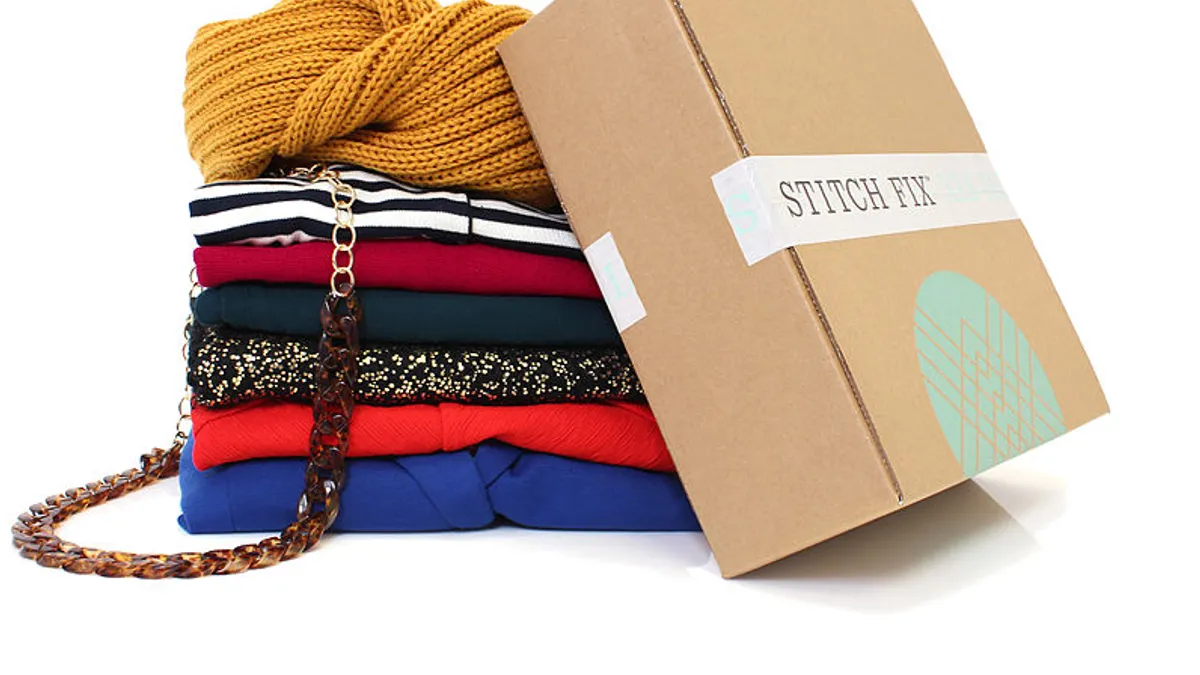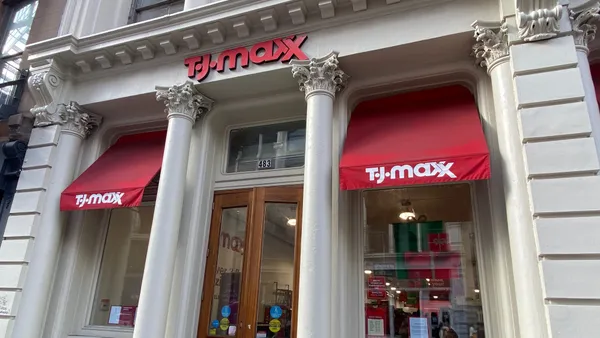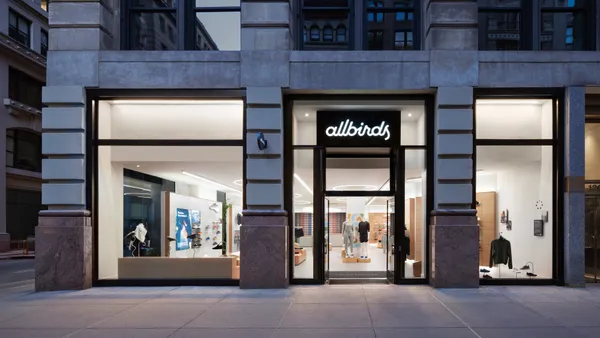Dive Brief:
-
Stitch Fix announced on Thursday that it has filed with the U.S. Securities and Exchange Commission for an initial public offering. The number of shares to be offered and their price range have not yet been determined, according to a press release.
-
Stitch Fix intends to list its Class A common stock on the NASDAQ under the ticker symbol SFIX, and the offering will be made only by means of a prospectus, the company said.
-
Goldman Sachs & Co. and J.P. Morgan Securities will act as lead joint book-running managers for the offering, Barclays Capital and RBC Capital Markets will act as book-running managers for the offering and Piper Jaffray & Co., Stifel, Nicolaus & Company and William Blair & Company will act as co-managers for the offering, according to the release.
Dive Insight:
Rumors of an initial public offering of San Francisco-based Stitch Fix shares have brewed for months, and the personal styling service reportedly filed for a special IPO ramp program a few months ago, which allows the SEC IPO review process to remain confidential.
The company has been in business for just five years, and has garnered backing from venture capital firms Baseline Ventures, Benchmark, Lightspeed Venture Partners and Western Technology to the tune of $46.75 million in three rounds, most recently $30 million in 2014. Still, the online personal styling space is pretty crowded, with rivals MMLaFleur, Tog & Porter, Dia & Co., Bomb Fell, Frank and Oak, Five For Five, Bungalow, Trunk Club and others vying for attention from shoppers and, in some cases, investors.
Stitch Fix Chief Operating Officer Julie Bornstein, who had been in the position for the past two years, quietly left the company this summer to seek "a new challenge." The company had tapped Paul Yee, who has extensive experience at major brands, as CFO just before that.
Earlier this year, the privately-held startup said it had $730 million in revenue in the 2016 fiscal year, marking its third consecutive year of profitability. At the time, it pushed back against rumors that it was turning down late-stage investments to clear a path for an initial public offering. However, speculation about an IPO intensified when Yee arrived.
Subscription services are proving to have enduring popularity among consumers, but the long-term financial viability of the model remains largely unproven. Nordstrom's Trunk Club, for example, began as a concierge service for men and now also styles women. But while it gets high marks from users, Nordstrom wrote down $197 million of that business last year. Three years ago, Nordstrom acquired the service, started by Bonobos co-founder Brian Spaly (who left late last year as CEO), but it is not yet profitable and the nearly $200 million write-down represents more than half of the $350 million Nordstrom paid for it.
To stem those losses, Nordstrom last year instituted a $25 at-home try-on fee (which can be credited to a purchase) and shortened the return window. Stitch Fix similarly has a $20 try-on fee that can be used toward a purchase and generally offers prices that are lower than Trunk Club thanks to, in part, a less costly styling approach based on inputs from a questionnaire, rather than Trunk Club's direct human interaction.














